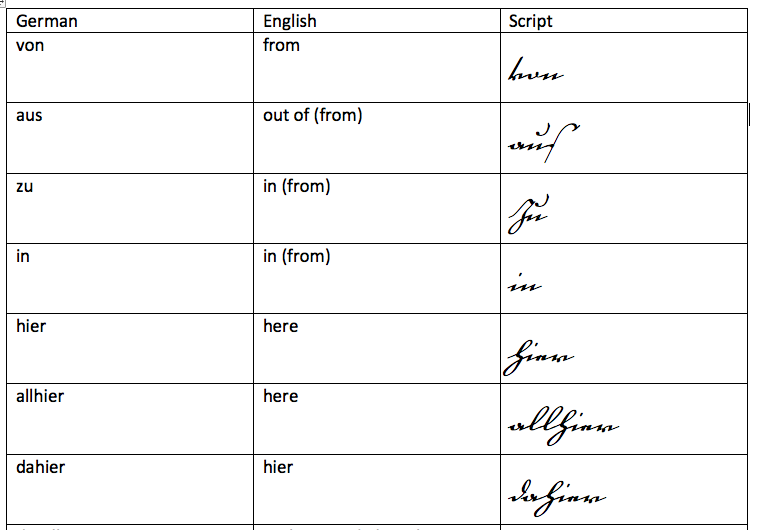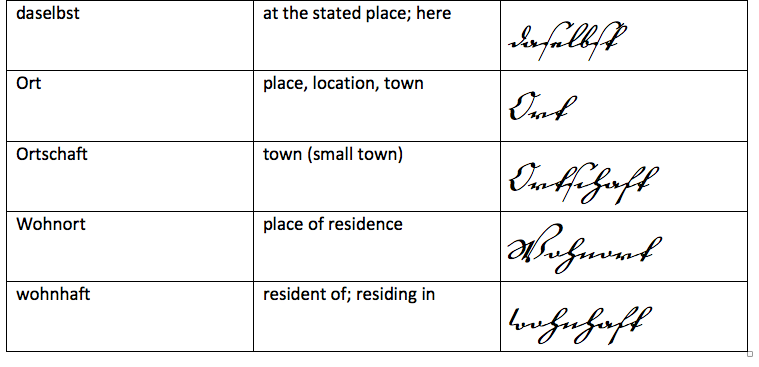Discovering ancestral towns is a thrilling part of any genealogist’s research. But if you don’t speak the language, how are you supposed to know if a word is the name of a town or simply another foreign term? In the table below, find all the town-related words you’ll need to know when working with your ancestors’ German records – as well as what these words may look like in the old German handwriting!

The table starts out with prepositions that may come before the name of a town (all with slight variations in meaning, but which all can be translated with “from” if appearing before a town), followed by many words meaning “here” (many of which are old-fashioned), and concluding with some general town vocabulary that’s important for any German genealogist’s knowledge base. For more information on discovering your ancestor’s hometown, see 5 Tips for Deciphering Town Names on German Records. Best of luck!
*Please note: Due to font limitations, the “final s” of the old German handwriting could not be typed here. Any final “s” in German (an “s” at the end of a syllable or the end of a word), should actually look like this:![]()
This applies to the word “aus” below.*



4 Responses
Thank you so much for this helpful information, Katherine. In your list of conference, you omitted that you will be speaking at the Ohio Genealogical Association spring conference. I plan on attending and look forward to hearing your two lectures and meeting you.
Thanks Donna – really looking forward to meeting you too!
Do you have the English alphabet with the German equivalent in both print and script?
If you google “Kurrentschrift wikipedia” a key is on there!